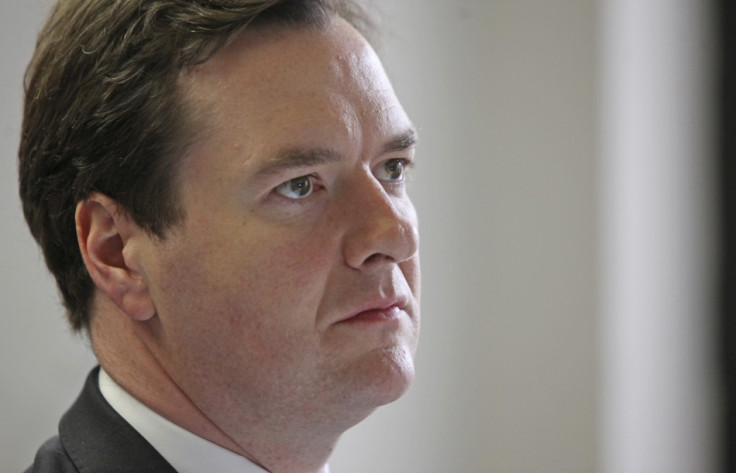Is the Powerful Banking Lobby on the Ropes? Osborne Pushes Ahead With Vickers Report Reforms

UK Chancellor George Osborne will hit back at lobbyists in his a Mansion House speech tonight, as he releases the government's publication of a White Paper on banking that will enforce the ring-fencing of investment banking units away from retail banking arms.
He is to announce that he has faced down strong lobbying pressure from the City and is to press ahead with plans to ringfence the high street operations of Britain's major banks from their higher-risk investment banking arms.
Osborne's speech will hail official governmental backing for proposed banking industry reforms that were set out in the Independent Commission on Banking's (ICB) report, dubbed 'The Vickers Report' as it was led by Sir John Vickers, despite banking industry experts highlighting flaws of these reforms.
The report said that in "order to create a more stable and competitive basis for UK banking in the longer term and provide more than greater resilience against future financial crises and removing risks from banks to public finances," then groups would have to ring-fence its retail banking businesses from investment banking operations by 2019.
Meanwhile, Bankers' bonuses across the EU are set to be limited by law, with many lobbyists admitting in private that they have lost the fight against a European parliament initiative to limit the size of bonuses relative to salary.
Some banks still hope to increase the propose ratio from 1:1 to 2:1 or beyond, while others are trying to limit the restriction to up-front cash bonuses. But many bankers now accept the principle of a ration as inevitable.
The Finanical Times reported that one senior bank lobbyist had admitted that attempts to defend the cultuture of big bonuses across the EU had been defeated. "It's dawning on many banks that this game is over," he said.
Reports of the Death of the Bankers' Lobby Much Exaggerated?
As the chancellor of the exchequer was getting spruced up for his Mansion House speech for The City's 'great and the good', a London Evening Standard crowed: 'Banks Rejoice as Osborne Waters Down Vickers Plan'.
London bankers had, said the report, expressed relief that the White Paper on Banking Reform had not gone as fasr as the original proposals.
Months of lobbying by the industry had resulted in the chancellor granting banks a series of concession.
Indeed, the the author of the blueprint for UK banking reform Sir John criticised the government for waterinhg down some of his proposals.
He said the government should have gone further in adopting his committee's proposals to make the banking system safer by "ringfencing" the UKs high street banks from their riskier investment banking arms.
He stressed that the tensions in the eurozone meant that the government should press ahead with the proposals, and urged the coalition to resist any further pressure to backtrack.
Contrary to public perception that the banks themselves at the frontline for the battle against the proposed reforms, independent think-tanks and analysts have all waxed lyrical about how detrimental the reforms would be.
Influential UK policy think-tank, the Adam Smith Institute hailed the Vickers report as a botched opportunity and will not solve the errors of the past." Furthermore, the group said that the proposals will pile new levels of regulation when the problem was that former regulations were either poorly conceived, imperfectly enforced or went unheeded.
Other industry experts said in the aftermath of the report that the proposed reforms "may hurt lending, growth, employment, profitability and ironically increase risk."
© Copyright IBTimes 2025. All rights reserved.






















